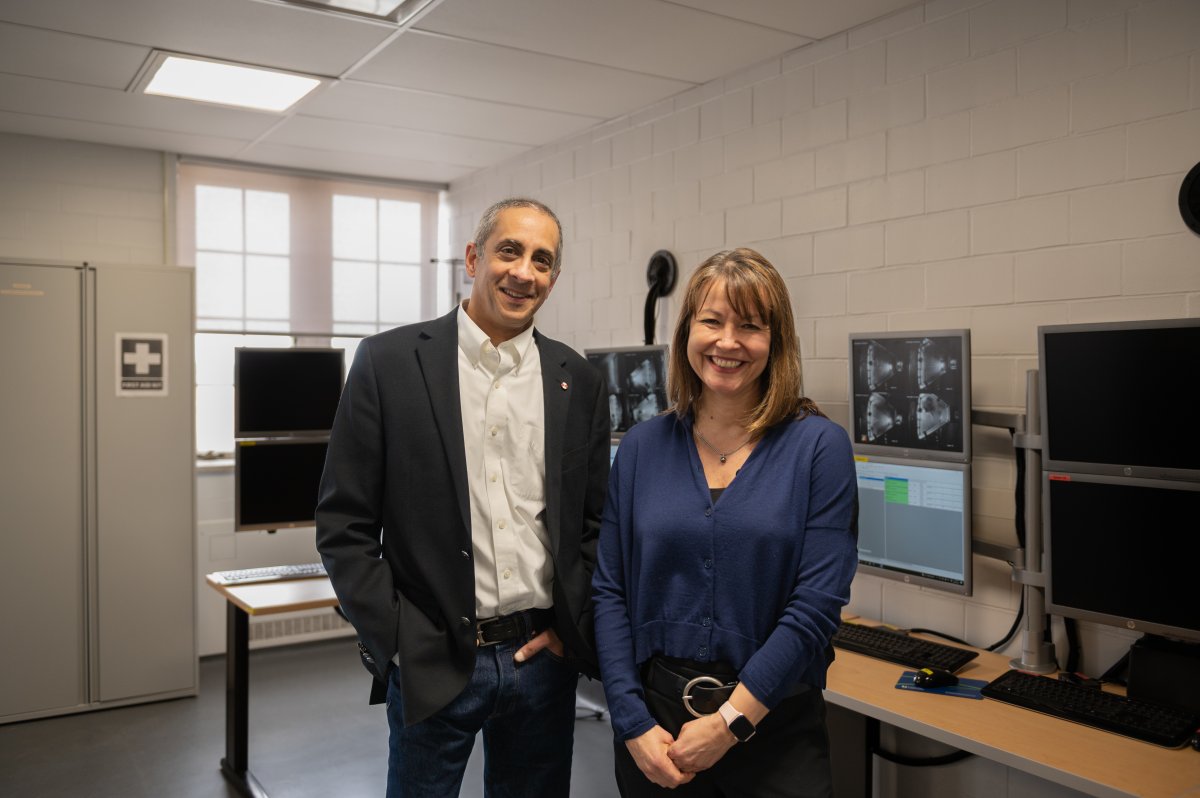Western University researchers hope a new project getting a multi-million-dollar grant could save years of work and billions of dollars in the testing of drugs that combat neurological diseases.

The new project, TRanslational Initiative to DE-risk NeuroTherapeutics (TRIDENT), received a $24-million grant from the federal government to put the research to use.
Using different scientific methods established over the last 25 years, TRIDENT will use multiple testing models to determine the efficiency of a medication for neurodegenerative diseases before it reaches the human trial stage. The aim is for drugs deemed not suitable enough to be thrown out before being sent to human trials, saving time and money.
Lead researcher Ravi Menon says the expected testing timeline for a new drug will likely take around three years and cost between a few hundred thousand dollars and a couple million dollars.
While a couple of million dollars is still a large sum, Menon explains it is a significant savings compared to the current costs.
“A typical human trial is about a billion, a billion and half dollars,” said Menon. “So it’s an enormous savings.”
The project will begin with testing drugs that have already failed the human trial stage to prove the efficiency of the TRIDENT system.
A vital part of the project is an open science concept that will have all results published, regardless of whether a certain drug was deemed successful or not. Co-lead researcher Lisa Saksida says this is vital as it will save other scientists from wasting time on a drug already deemed not suitable.
“People used to bury the bad results so that nobody would ever know about them, and then other scientists would come along and do the same experiment because they didn’t know they had already failed,” said Saksida.
“This will help facility drug evaluation and drug discovery.”
The testing models will focus on a fundamental aspect of neurodegenerative diseases Menon and Saksida say are often overlooked – cognition.
“Neurodegenerative diseases impact cognition – mental processes that enable us to carry out everyday tasks, solve problems, make decisions, and interact with our surroundings,” said Menon.
“However, millions of dollars are invested in developing drugs without evaluating their impact on cognition and invariably, the human clinical trials of such drugs fail.”
The testing models that will help make cognition a key aspect of the research include analyzing special lab-grown cells from patients that mimic the human brain and having mice use touchscreen technology.
“(Mouse) brains are similar enough to ours that we can use them as a pretty good model for understanding what’s happening in the human brain,” said Saksida.
“Our goal really is to reject drugs early on in the pipeline, so we want to show that if a drug doesn’t work in our mouse models… then why would we put it into human patients?”
The researchers hope to be able to identify new drugs within six years that could be successful when passed to the human trial stage.







Comments